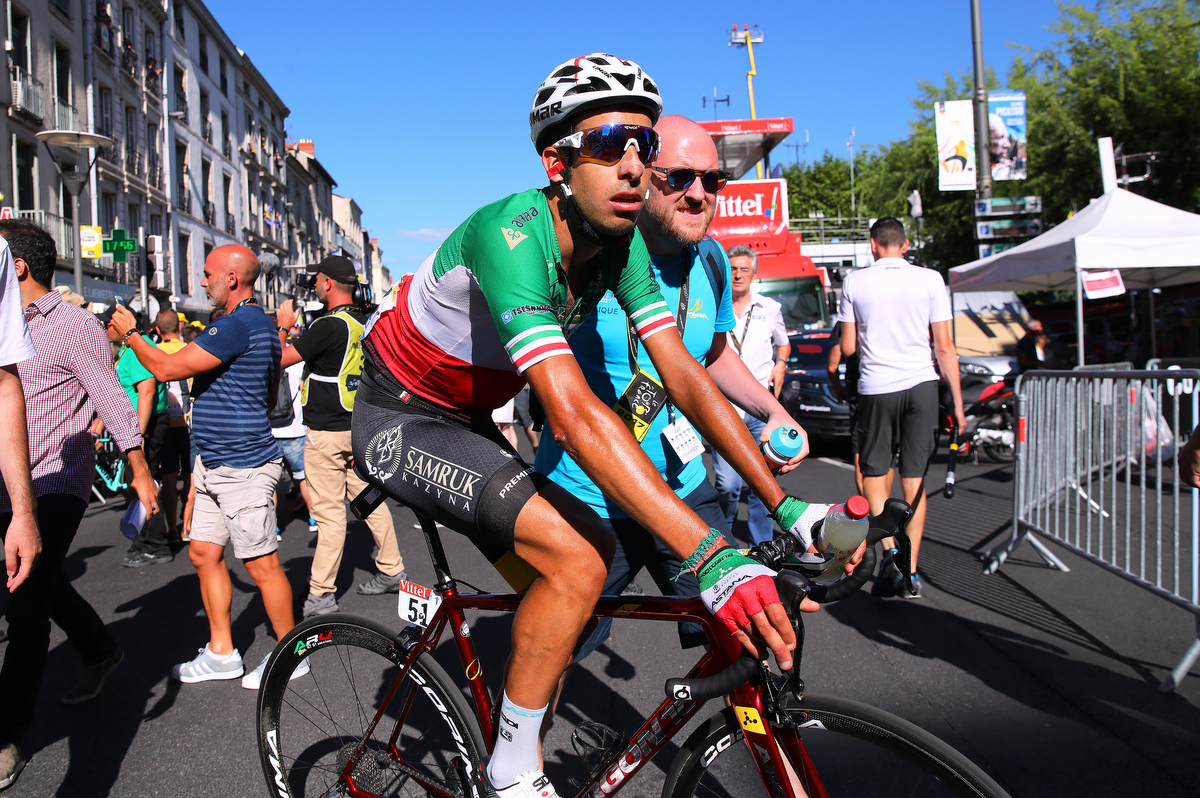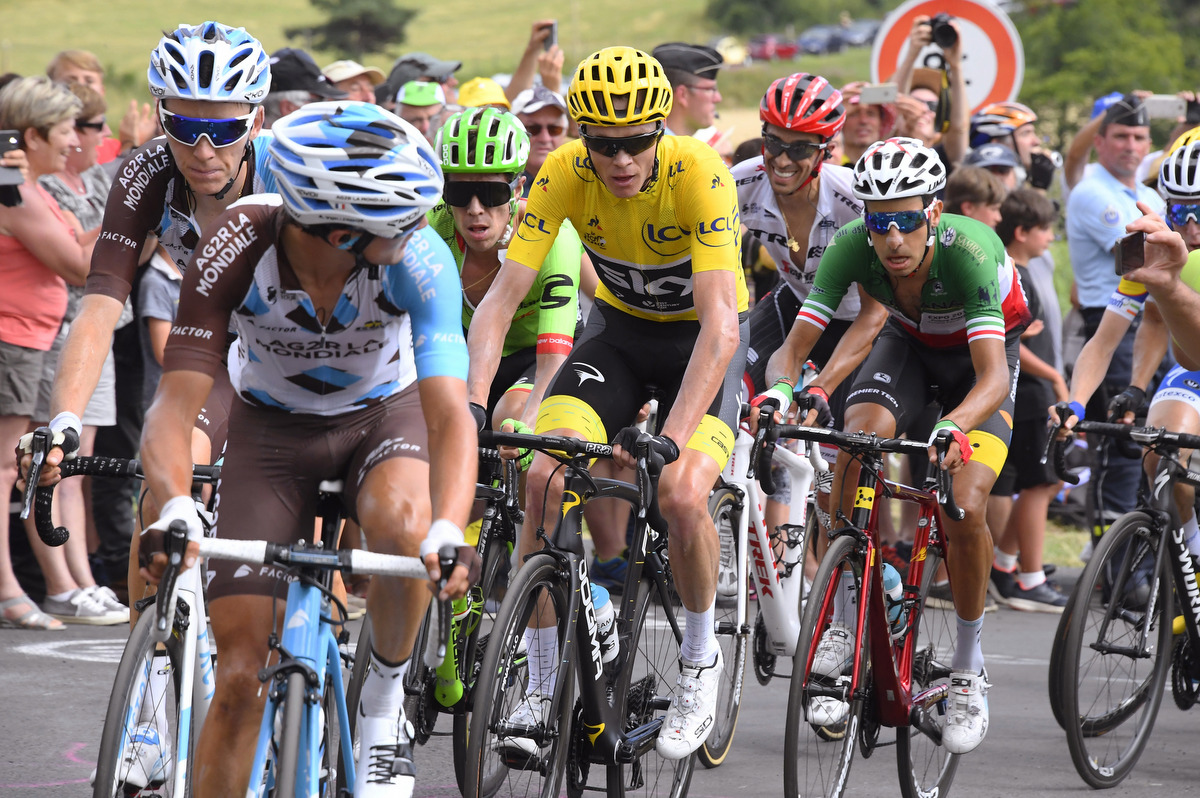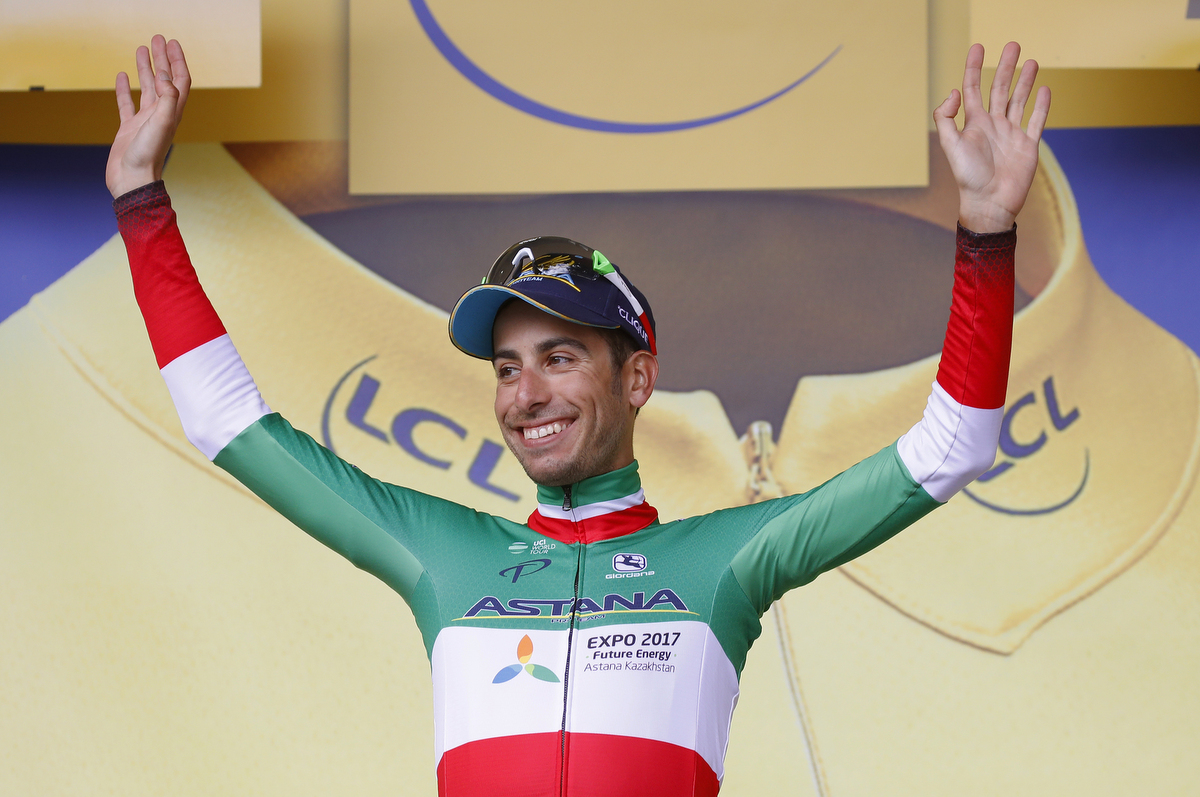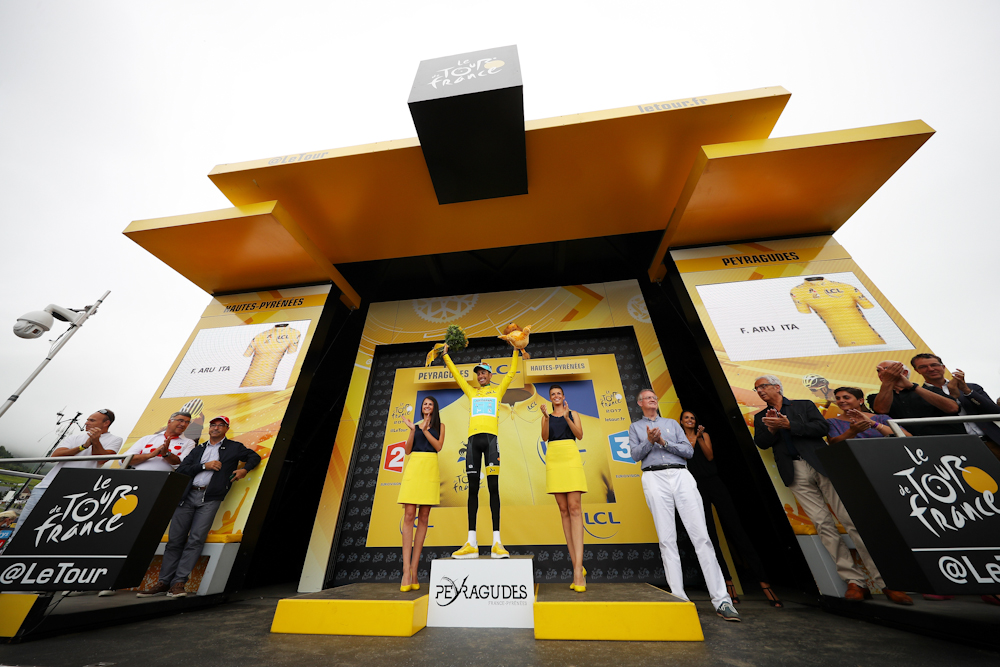Tour de France: Invention more important than tactics in final week, says Aru
Sardinian primed to attack in the Alps





The Tour de France begins all over again in Le Puy-en-Velay on Tuesday, and Fabio Aru (Astana) is more aware than most that the impressions of the first two weeks are not always borne out in the third. In his career to date, after all, the Sardinian has both enjoyed and endured the vicissitudes of the dying days of a Grand Tour.
Aru loses Tour de France lead after 'being too far back' in stage 14 finale
Tour de France: LeMond urges Sky to attack tired Aru
Froome survives attacks and mechanical in the Massif Central
Tour de France: Aru and Astana look to the Alps for hope and inspiration
Froome: I thought my fight for yellow was over
Contador: A lot can still happen at the Tour de France
Tour de France: Can the challengers end Chris Froome's reign?
In 2015, Aru's Giro d'Italia challenge seemed over by the second rest day, only for a late surge in the Alps that brought him to within touching distance of Alberto Contador's seemingly unassailable maglia rosa. Later that season, he overhauled Tom Dumoulin on the final weekend of the Vuelta a España to climb final overall victory. In his Tour debut a year ago, meanwhile, Aru cracked inexplicably on the penultimate stage, just as he seemed to be mounting a podium challenge, and dropped to 13th place overall.
The third week of a Grand Tour is often raced on shifting sands, particularly when nothing is firm in the general classification. Just 29 seconds separate the top four riders at this Tour, with Aru currently second, a mere 18 seconds off the yellow jersey of Chris Froome (Team Sky).
"The third week is a race unto itself. I wouldn't say the first two weeks have been easy – they were very difficult, with a lot of stress – but the last week comes after you've already done 15 stages," Aru said in Saint-Etienne during Monday's rest day. "Everybody is tired in the third week, and some people recover better than others. The GC is still very tight, and there are four or five riders within a few seconds of one another."
An additional element to the final week is one rarely considered, but which has proved pivotal on occasion at the Giro. While there has been no shortage of tough and insidious stages to date, the Tour's foray into the Alps brings it to its highest points. On Wednesday, the race crosses the mighty Col du Galibier, 2642 metres above sea level. On Thursday, the contenders must climb the Col d'Izoard (2360 metres) by way of the Casse Desert.
"We'll reach altitudes we haven't reach before now, and I think none of us know how it will go. There are complex days ahead," Aru warned.
"But on the Tour, every stage is dangerous, so you can never lower your guard. This will be a difficult week. I think there will be a lot of attacking and spettacolo, because, aside from Froome, the rest of us are on the same level in the time trial. We'll want to gain time on him before that.
Get The Leadout Newsletter
The latest race content, interviews, features, reviews and expert buying guides, direct to your inbox!
"The level is very high here, and we've all at the same level up to now. In the other Grand Tours I've done, there's been a bigger gap to fourth or fifth by now and the podium was more defined. That makes this different, it's a new situation for me and it will be hard to the end."
Tactics
In theory, Aru, Romain Bardet (AG2R La Mondiale) and Rigoberto Uran (Cannondale-Drapac) – not to mention Dan Martin, just 1:12 down in fifth overall – could prove natural allies of circumstance against Froome in the Alps. In practice, it is never that simple. Or, to cite Mike Tyson's famous old observation about the boxing ring, everybody has a plan until they get punched in the mouth.
"We'll see how the race unfolds. Maybe we'll find natural alliances on the road but you can't make them beforehand," said Aru. "Inventing something on the bike will be more important than tactics. In the third week of a Grand Tour, you can plan a lot of tactics at the table beforehand, but it's only when you're in the race that you know if you have the legs or not."
With that in mind, Aru was reluctant to make any predictions at this juncture about how much time he needed to gain on Froome ahead of Saturday's 23-kilometre time trial in Marseille. He lost 40 seconds over 14 kilometres on the rain-soaked opening day in Düsseldorf but much water will have passed under the bridge by Marseille.
"I don't know. Düsseldorf was the first day and Marseille is on the penultimate day. Normally in the final time trial, the energy you have left counts more, but it's not always like that," Aru said. "But honestly, I'm not thinking of that, I'm just thinking about the next stage coming up."
At the beginning of his career, Aru's press conferences tended to be limited to a few, carefully chosen words of praise for his teammates, but he has become gradually more comfortable with the media demands of a Grand Tour contender over the years. Only once was he briefly stuck for words on Monday, when asked to assess the role of his former teammate Mikel Landa at Sky, breaking into a broad smile and pausing before answering.
At the 2015 Giro, Landa was ordered to sit up on the road to Sestriere and wait for Aru, sacrificing his own outside hopes of overall victory. At that year's Vuelta, meanwhile, Landa was perceived to have disobeyed team orders by soloing to victory in Andorra. Landa is currently just 1:17 off Froome in sixth overall and appeared the strongest climber in the race in the Pyrenees.
"It's a bit of a different situation," Aru said. "Landa's in quite a high position on GC. He'll help Froome but he'll want to stay high on GC himself too. Mikel is very strong, he'll certainly be an advantage to Froome."

Barry Ryan was Head of Features at Cyclingnews. He has covered professional cycling since 2010, reporting from the Tour de France, Giro d’Italia and events from Argentina to Japan. His writing has appeared in The Independent, Procycling and Cycling Plus. He is the author of The Ascent: Sean Kelly, Stephen Roche and the Rise of Irish Cycling’s Golden Generation, published by Gill Books.